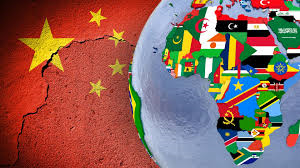To ensure that African nations maintain sovereignty over their resources and economies, it is essential to adopt a range of strategies and policies that protect national interests, promote sustainable development, and prevent external entities from exploiting resources unfairly.
Here are key measures that African countries can take:
1. Strengthening Legal and Regulatory Frameworks
African countries should establish robust legal and regulatory frameworks to govern resource extraction and foreign investments. This includes:
- Enacting clear laws that ensure fair terms for resource exploitation, ownership, and profit-sharing.
- Implementing environmental protection regulations to prevent resource depletion and long-term ecological damage.
- Strengthening labor laws to protect local workers and ensure fair employment practices in foreign-run projects.
2. Increasing Transparency in Resource Contracts
Opaque contracts with foreign investors can undermine sovereignty by allowing unfair or exploitative terms to go unnoticed. Transparency initiatives should include:
- Public disclosure of all resource extraction agreements and investment contracts.
- Independent audits and oversight mechanisms to ensure that deals align with national interests.
- Public participation and consultation with local communities impacted by resource extraction, allowing for inclusive decision-making.
3. Promoting Local Ownership and Value Addition
To retain more control over their resources, African countries should focus on:
- Local content policies that require foreign investors to partner with local companies, employ local workers, and source materials from domestic suppliers.
- Value addition strategies to process raw materials locally rather than exporting them in their raw form. This increases domestic employment, industrial capacity, and economic benefits.
- Supporting domestic industries and businesses to take a more active role in resource sectors, reducing dependence on foreign corporations.
4. Diversifying Economies
Heavy reliance on natural resources leaves countries vulnerable to external pressures and market fluctuations. African nations should focus on economic diversification by:
- Developing sectors such as agriculture, manufacturing, services, and technology to reduce dependency on resource extraction.
- Investing in human capital development, education, and skills training to build a knowledgeable workforce that can drive innovation in diverse industries.
5. Establishing Sovereign Wealth Funds
Sovereign wealth funds (SWFs) allow countries to manage revenues from natural resources effectively. African nations should:
- Set up SWFs to invest resource revenues in long-term development projects, infrastructure, education, and health, rather than relying solely on foreign companies.
- Use these funds to stabilize the economy during periods of volatility in commodity prices and to preserve wealth for future generations.
AfriPrime App link: FREE to download...
https://www.amazon.com/Africircle-AfriPrime/dp/B0D2M3F2JT
6. Enforcing Anti-Corruption Measures
Corruption can undermine national sovereignty by allowing foreign investors to exploit loopholes and secure contracts on unfair terms. Key anti-corruption strategies include:
- Strengthening institutions to ensure accountability in government and resource management sectors.
- Implementing strict anti-corruption laws with severe penalties for offenders.
- Promoting independent judiciary systems that can adjudicate disputes impartially, including conflicts with foreign investors.
7. Building Regional Cooperation
By working together, African nations can enhance their negotiating power with foreign investors and protect regional resources. Measures include:
- Establishing regional agreements and partnerships to regulate transboundary resources like rivers, forests, and minerals.
- Promoting intra-African trade through organizations like the African Continental Free Trade Area (AfCFTA), which can reduce reliance on external markets and strengthen economic sovereignty.
8. Negotiating Fair Trade and Investment Agreements
African nations should approach trade and investment negotiations with a focus on securing fair terms that protect their economic interests. This includes:
- Rejecting agreements that impose overly restrictive conditions or undermine policy autonomy (e.g., limiting the ability to regulate industries or impose tariffs).
- Favoring long-term strategic partnerships that allow for technology transfer, capacity building, and fair distribution of profits.
9. Developing Technological and Scientific Capacity
To ensure that African nations can exploit their resources independently, they must invest in scientific research and technological innovation. This can be achieved by:
- Establishing research institutions and fostering innovation in resource management and industrial processes.
- Partnering with universities and technical institutions to develop local expertise in areas such as mining, energy production, and environmental protection.
- Promoting technology transfer agreements in foreign investment contracts to ensure knowledge sharing.
10. Defending National Interests in Multilateral Institutions
African nations must play an active role in international organizations and multilateral platforms to safeguard their sovereignty. This involves:
- Advocating for reforms in global trade and finance institutions to ensure fair representation and better terms for developing countries.
- Forming coalitions with other resource-rich nations to promote policies that defend the rights of resource owners against exploitation by multinational corporations.
By implementing these measures, African nations can enhance their control over their resources, secure fair returns on investments, and protect their economic sovereignty in the face of global economic pressures and external actors.
AfriPrime App link: FREE to download...


